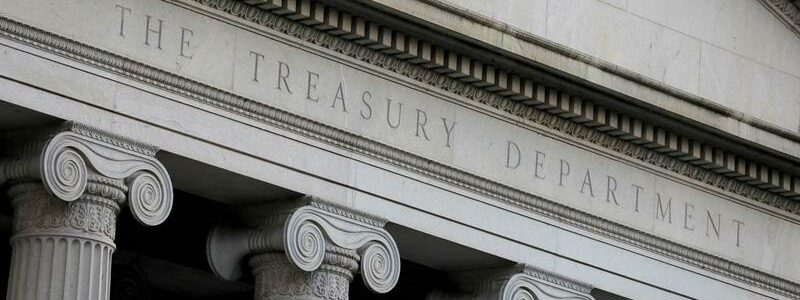
Multiple U.S. trade partners risk 'manipulator' label in Yellen's first currency report
WASHINGTON (Reuters) -Taiwan and Thailand risk joining Vietnam and Switzerland in running afoul of U.S. currency manipulation triggers in Treasury Secretary Janet Yellen’s first foreign exchange report, expected this week, but whether she applies that label is unclear.
The Biden administration has sought to engage more constructively with trading partners and allies, and currency experts say that Yellen could veer from the aggressive approach applied by the Trump administration in the currency report, taking into account the trade and capital flow distortions of the coronavirus pandemic and reviewing the structure of the report.
“I think the Yellen Treasury would be inclined to take a more flexible approach,” said Matthew Goodman, a former U.S. Treasury official now with the Center for Strategic and International Studies. He added, however, that Yellen’s hands are “tied somewhat” by the criteria applied to deciding whether a trading partner manipulates its currency.
Yellen also has challenges in softening Washington’s position, facing pressure from labor unions and Democrats in Congress to maintain a tough stance on currency manipulation.
Trading partners are labeled manipulators if they meet specific criteria – a more than $20 billion bilateral trade surplus with the United States, foreign currency intervention exceeding 2% of gross domestic product and a global current account surplus exceeding 2% of GDP – which led the Trump Administration to label Switzerland and Vietnam as currency manipulators in December.
U.S. law requires the Treasury to seek negotiations with manipulators to bring them back below the thresholds, with specified remedies including denying them access to U.S. government procurement contracts and development finance.
The report is expected to signal how strictly Yellen interprets the criteria, or whether she reverses tightening moves by her predecessor, Steven Mnuchin, who reduced the current account threshold to 2% of GDP from 3%, ensnaring more countries.
Mnuchin designated here China a currency manipulator in August 2019 at the height of U.S.-China trade tensions, even though Beijing met just one of the criteria. The label was dropped here five months later when the two countries reached a trade deal, drawing broad criticism that the Trump administration had politicized the report.
Foreign exchange analysts say that Taiwan, with a current account surplus of 14% in 2020, a record $30 billion trade surplus with the United States and net foreign exchange purchases of nearly 6% of GDP, is firmly in Treasury’s crosshairs during this cycle, even though the Taiwan dollar remains near 23-year highs.
Vietnam, Thailand and Singapore are in similar straits, analysts say. BBH analyst Win Thin also sees Malaysia and South Korea at risk.
Although the Swiss National Bank appears to have sold off a tiny portion of its nearly $1 trillion foreign currency pile to show goodwill to the U.S. Treasury, “that won’t be enough to get off the list,” said Credit Suisse economist Maxime Botteron.
The Treasury declined to comment on the contents of the forthcoming currency report, as did the SNB.
For Vietnam, the designation has bigger consequences, as the U.S. Trade Representative’s office has an active investigation on Hanoi’s currency practices that could lead to U.S. tariffs on imports from Vietnam.
A number of countries are expected to remain or appear on the “monitoring list,” BBH’s Thin says, among them China, Germany, Japan, Italy, India, Singapore, Ireland and Mexico.
HAWKISH PLEDGE
Yellen told U.S. senators at her January confirmation hearing she would fight for market-determined exchange rates.
But she has currency hawks in Congress – both Democrats and Republicans – watching over her shoulder. Senate Banking Committee Chairman Sherrod Brown, an Ohio Democrat, plans to introduce legislation on Thursday that would make it easier for the Commerce Department to treat currency manipulation as unfair subsidies in trade cases.
“When other countries engage in unfair trade practices, including currency manipulation, Ohio workers pay the price,” Brown said in a statement to Reuters.
Taiwan’s case is more complicated by geopolitical pressures, including heightened military tensions with China, and the island’s position as a major exporter of semiconductors that are needed to help ease a supply shortage for U.S. manufacturers.
Mark Sobel, another former Treasury official, said the latter is among complex issues that do not fit with a mechanical application of the currency manipulator criteria.
“Treasury has to… inject more nuance into its thinking, not only about the countries, but also about the implications of U.S. policy for these countries,” said Sobel, now with the Official Monetary and Financial Institutions Forum think tank.
Source: Read Full Article